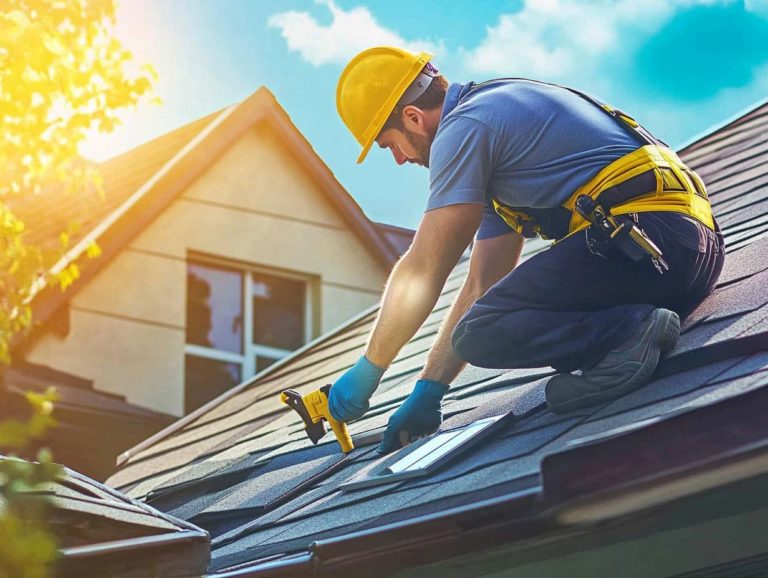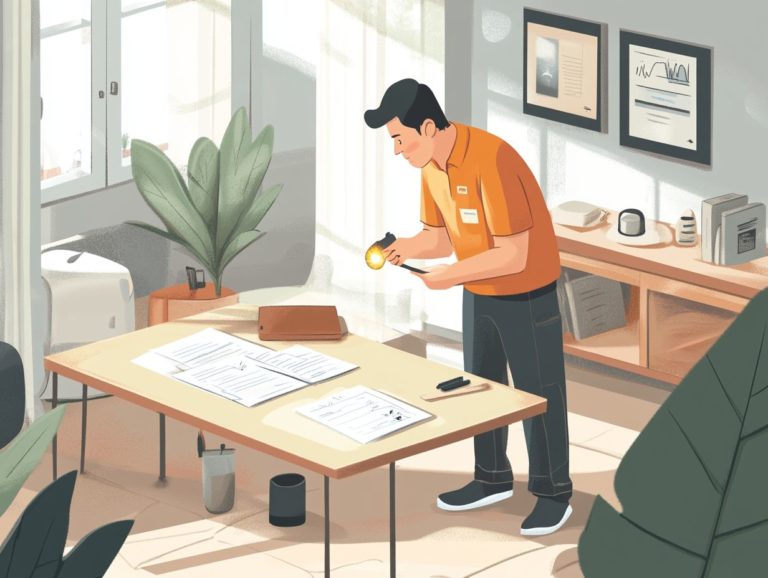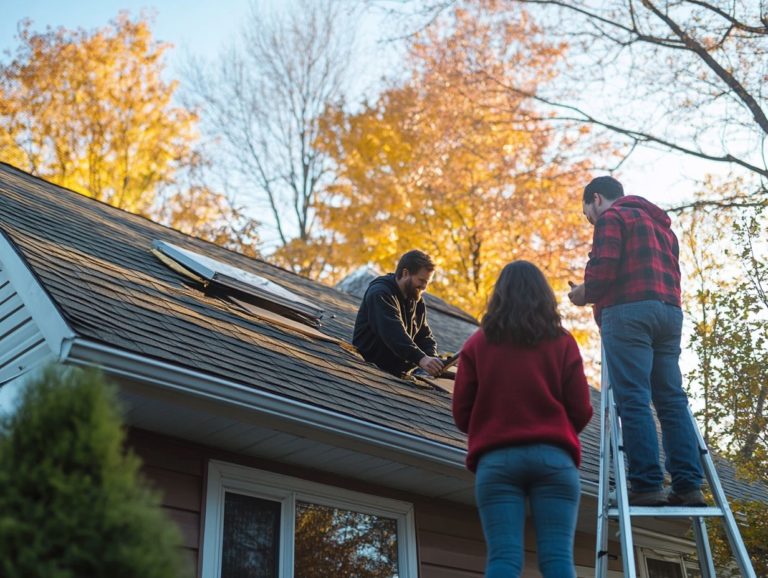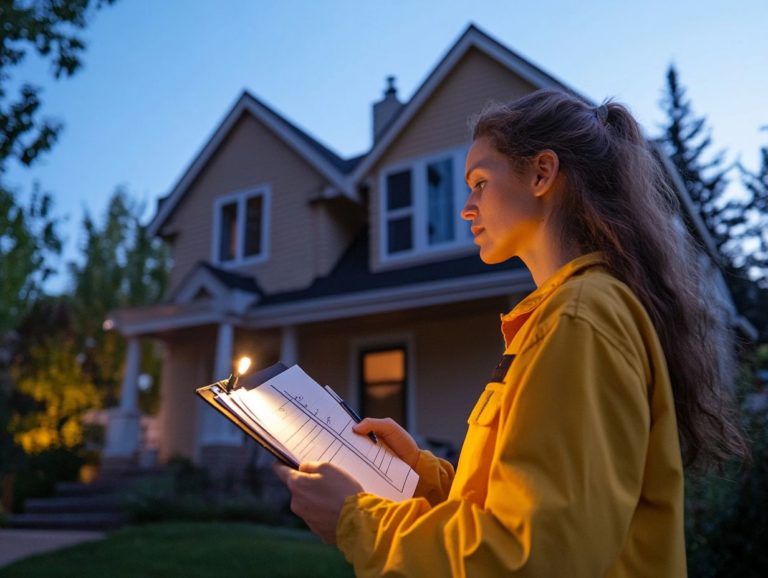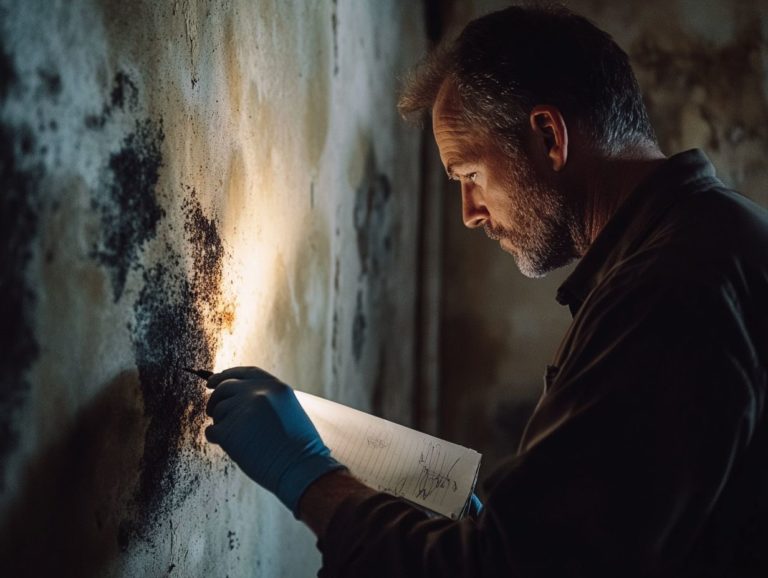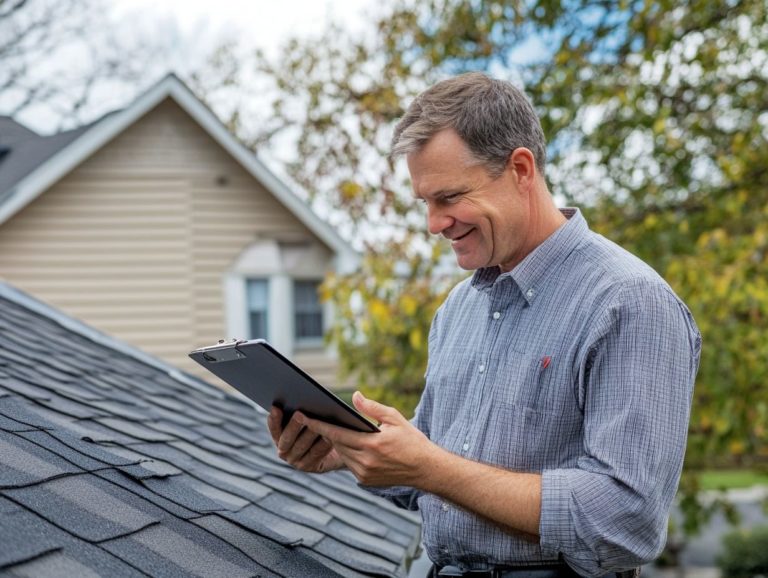Understanding Home Inspection Costs
When you re purchasing a home, conducting a thorough inspection is essential to ensure you re making a sound investment.
This article delves into what a home inspection truly entails, covering its definition and purpose. You ll explore the various factors that influence inspection costs, gain insights into average pricing, and understand what inspectors typically check during their assessments.
You ll also learn how to select a qualified inspector and uncover practical tips to save money throughout this process. Whether you re a first-time buyer or a seasoned homeowner, this guide will equip you with crucial knowledge for a successful home inspection!
Contents
- Key Takeaways:
- What is a Home Inspection?
- Factors Affecting Home Inspection Costs
- Conclusion
- Average Cost of Home Inspections
- What is Included in a Home Inspection?
- How to Choose a Home Inspector
- Ways to Save on Home Inspection Costs
- Preguntas Frecuentes
- Qu es una inspecci n de vivienda y por qu es importante?
- Cu nto cuesta en promedio una inspecci n de vivienda?
- Qu factores pueden afectar el costo de una inspecci n de vivienda?
- Hay tarifas adicionales de las que deber a estar al tanto?
- Puedo negociar el precio de una inspecci n de vivienda?
- Vale la pena pagar por una inspecci n de vivienda m s cara?
Key Takeaways:
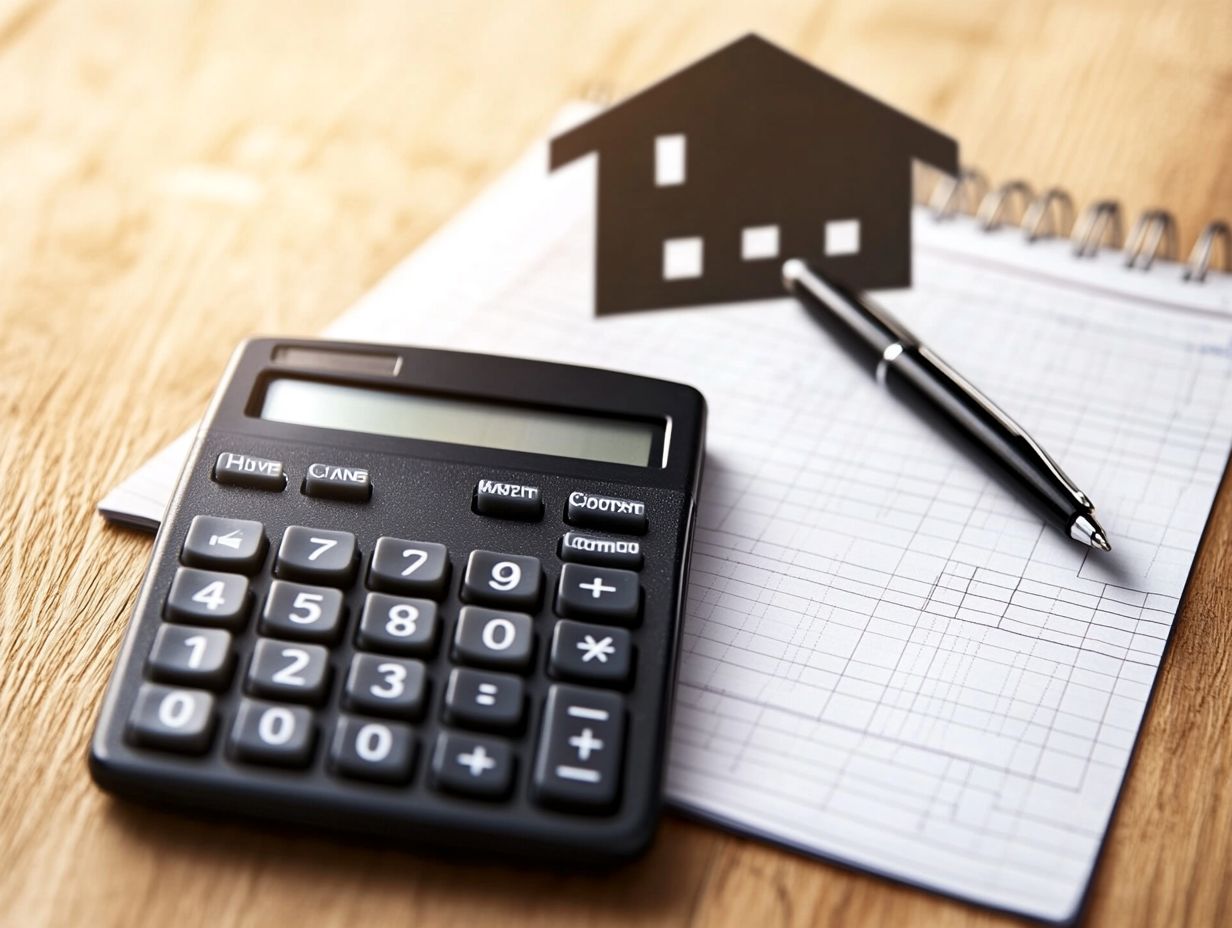
- Home inspections identify potential property issues.
- Costs vary based on size, age, and services.
- Choose a qualified inspector, and consider bundling services to save money.
What is a Home Inspection?
A home inspection is a thorough visual examination of a property’s condition, typically carried out by a certified inspector. They evaluate critical aspects, including structural integrity, electrical systems, plumbing, and heating and cooling systems.
This essential step in the home-buying journey provides valuable insights into the property s overall state and helps you identify any safety hazards or potential issues that could surface after your purchase.
With an inspection report in hand, you can make informed decisions about necessary repairs and maintenance, paving the way for a smoother transaction.
Definition and Purpose
The purpose of a home inspection is to give you a comprehensive evaluation of a property. It allows you to understand any potential issues and the home’s overall condition before making that final buying decision.
This crucial step acts as your safety net, alerting you to hidden problems that could lead to costly repairs later.
A certified inspector, armed with specialized training and experience, carefully checks important parts of the home from the roof and foundation to the plumbing and electrical systems ensuring adherence to industry standards.
By pinpointing potential hazards or areas needing improvement, the inspection helps you make informed decisions and negotiate effectively, giving you peace of mind as you embark on your journey toward homeownership.
Factors Affecting Home Inspection Costs
Several factors can significantly affect the cost of a home inspection. These include your geographic location, the size of the home, and the specific inspection services you request. For a detailed overview, check out our guide on understanding home inspection fees and costs.
Each of these elements plays a crucial role in determining the overall price, so it’s essential to consider them as you plan your inspection.
Size and Age of Home
The size and age of your home are pivotal factors that influence inspection costs. For a deeper insight, check out understanding the cost breakdown of home inspections. Larger properties generally require more time and expertise to evaluate, resulting in higher fees.
If your home is older, it may come with unique challenges, such as outdated wiring, aging plumbing, and potential structural deficiencies that require specialized knowledge.
Inspectors who specialize in older homes often conduct thorough evaluations to uncover hidden issues like mold or foundational cracks, which can increase the overall fees. These professionals may utilize advanced tools and techniques to identify problems more effectively, underscoring the complexities involved in inspecting vintage homes.
Therefore, it s crucial for homeowners to recognize that while inspection costs can vary, investing in comprehensive evaluations is wise. It can lead to significant savings on future repairs and, most importantly, ensure the safety of your home.
Conclusion
In summary, a thorough home inspection is vital for protecting your investment. Don’t wait until it’s too late get your home inspected to ensure your investment is safeguarded!
Additional Services
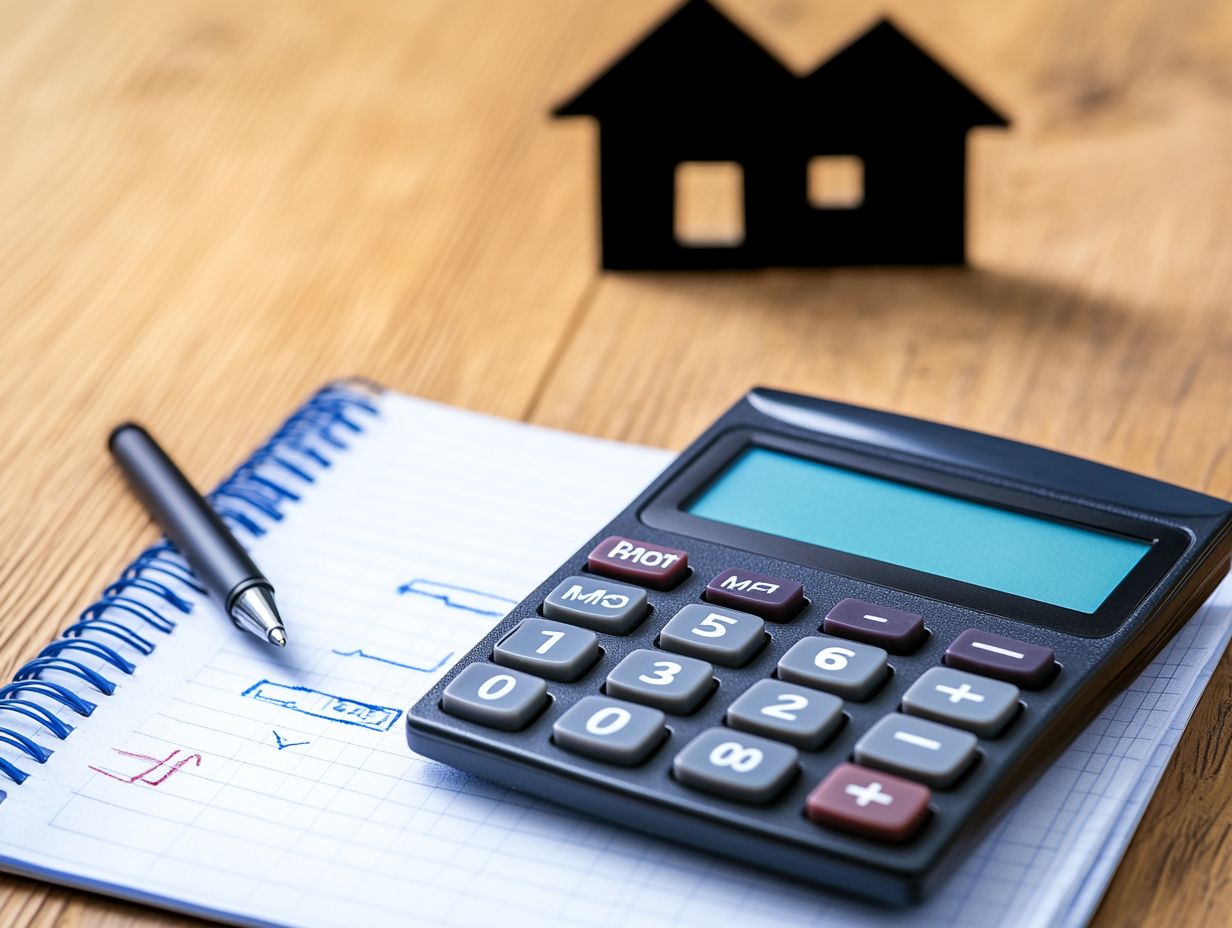
Additional services like radon testing, mold testing, and septic system inspections can elevate your overall home inspection costs. These services are tailored to your specific needs as a buyer.
These specialized inspections are crafted to address particular concerns that may emerge during your property evaluation, ensuring that no potential issue slips through the cracks.
For instance, radon testing is essential for checking the air quality in your home. This is crucial in areas known for high radon levels. Similarly, mold testing can uncover hidden threats that could compromise both the integrity of the structure and the well-being of its inhabitants.
If your potential home relies on a septic system, inspections are a must; they help you avoid costly repairs and maintenance down the line.
By opting for these additional services, you gain the peace of mind that accompanies a thorough assessment, ultimately justifying the increase in inspection fees.
Average Cost of Home Inspections
The average cost of home inspections can fluctuate considerably, typically ranging from $300 to $500 nationwide, making it important to understand home inspection fees.
However, regional prices might differ substantially, influenced by local market conditions and demand.
National and Regional Averages
National averages for home inspection fees typically hover around $300, but you’ll notice that regional averages can vary quite a bit, especially in bustling metropolitan areas like New York City and Los Angeles, where costs can soar to $600 or more.
In cities such as San Antonio and Houston, you can expect fees to range between $250 and $400. This variance is often influenced by factors like the size and age of the property, as well as local demand. Meanwhile, in Chicago, you might find that inspections average around $400 to $500, slightly on the higher side.
Real estate professionals are invaluable in navigating these fluctuations. They guide you through the inspection process and help you understand the associated costs. By tapping into their local expertise and resources, agents can provide you with insights into reputable inspectors and typical charges in your specific neighborhood, ensuring you re well-informed before making significant investment decisions.
What is Included in a Home Inspection?
A comprehensive home inspection offers you a detailed report that covers an array of critical areas and systems.
You’ll receive insights into the condition of the roof, the functionality of electrical systems, the state of plumbing, and the efficiency of HVAC systems.
A thorough visual examination highlights any potential safety hazards. This ensures your peace of mind with your property investment.
Common Areas and Systems Inspected
During a home inspection, certified inspectors meticulously examine various areas and systems, including electrical systems, plumbing, HVAC systems, roof condition, and the foundation, all to ensure the property’s safety and integrity.
These inspections serve a dual purpose: they not only identify potential hazards and necessary maintenance but also offer invaluable insights into the overall condition of the home.
For instance, when assessing electrical systems, inspectors look for:
- Identify outdated wiring
- Check for insufficient electrical panels
- Ensure proper grounding to mitigate fire hazards
Likewise, plumbing inspections focus on detecting:
- Leaks
- Evaluate water pressure
- Assess the state of pipes to prevent costly water damage
A comprehensive evaluation of HVAC systems guarantees optimal efficiency and comfort, while roof assessments reveal issues like shingle wear or leaks, which could escalate into significant problems if neglected.
By scrutinizing the foundation, inspectors can identify any signs of settling or cracking that may pose serious structural concerns in the future.
These meticulous checks are crucial for both current homeowners and prospective buyers, providing peace of mind and enabling informed decisions about property investments.
How to Choose a Home Inspector
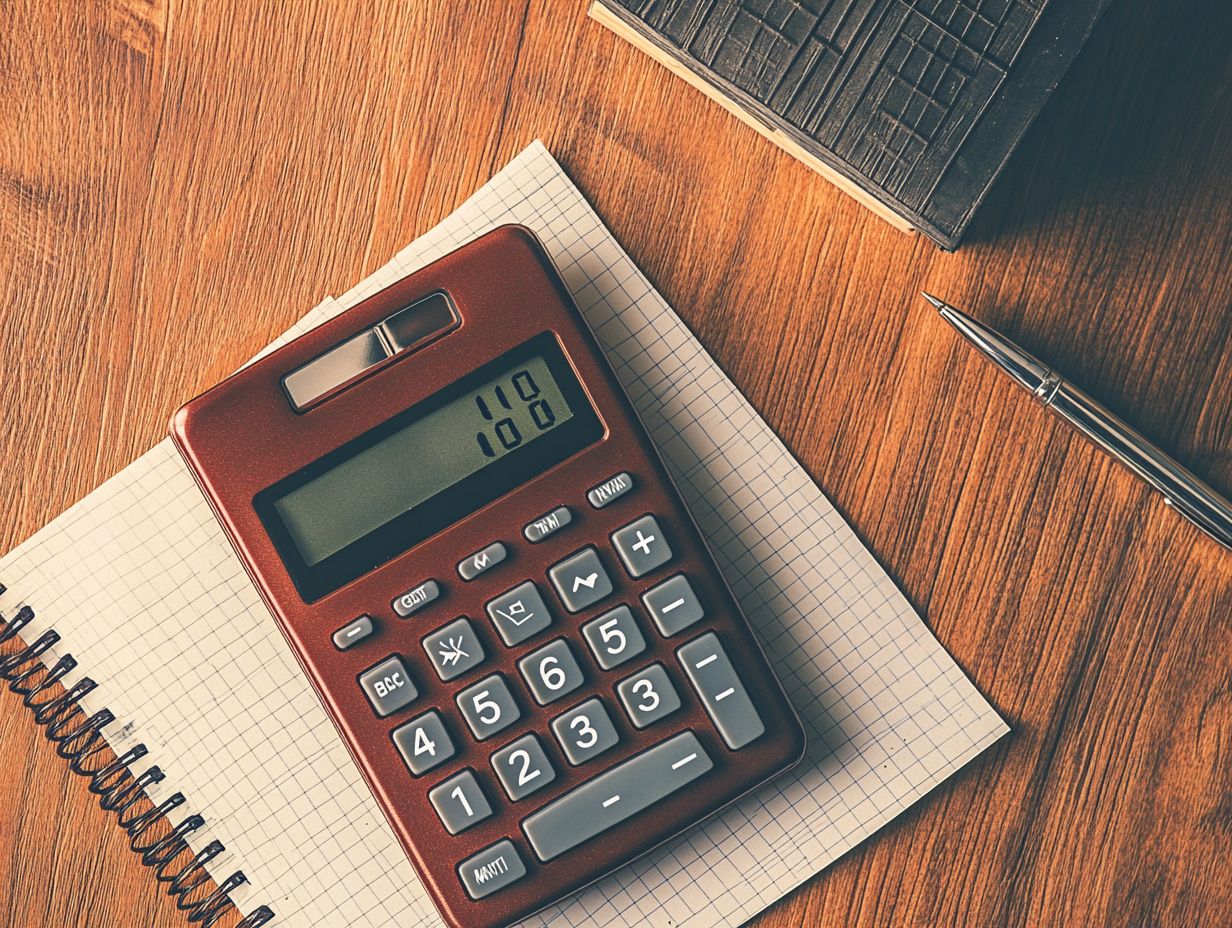
Selecting the right home inspector is essential for you as a home buyer.
Don’t skip on their qualifications! This is how you ensure a smart investment. It’s important to pay close attention to their qualifications, certifications, and recommendations from real estate professionals. This diligence ensures that you receive the highest level of inspection expertise, safeguarding your investment and giving you peace of mind.
Start your search for a qualified home inspector today. Your peace of mind is just a call away!
Qualifications and Certifications to Look For
When selecting a home inspector, it’s essential to prioritize key qualifications and certifications. Look for certified inspectors who have passed exams and met specific standards set by organizations like the American Society of Home Inspectors (ASHI).
These credentials indicate a solid understanding of home construction and maintenance. They also show a dedication to continuous education in this vital field. Inspectors who are members of the National Association of Home Inspectors (NAHI) or hold the Certified Master Inspector (CMI) designation have undergone extensive training and passed comprehensive exams.
This expertise is crucial for accurately assessing the condition of various home systems such as plumbing, electrical, and structural components to ensure you receive a thorough evaluation.
Inspectors with specialized certifications, like those focusing on mold assessment or energy efficiency, offer added value. They are skilled at identifying potential issues that could impact your investment over the long haul.
Ways to Save on Home Inspection Costs
As a home buyer, you have several savvy strategies to save on home inspection costs.
Consider negotiating with the seller to see if they re willing to cover some of the inspection fees. You can also explore the option of combining inspection services to streamline your expenses.
These approaches can significantly reduce your overall costs while ensuring you make a well-informed purchase.
Negotiating with the Seller
Negotiating with the seller can be a strategic move, potentially allowing you to lower home inspection fees or secure necessary repairs before finalizing the sale.
Presenting your home inspection findings is your chance to negotiate! By pointing out significant issues like outdated plumbing or electrical work you can make a strong case for essential repairs or a reduction in the overall sale price.
It’s crucial to maintain a calm and collected demeanor during these discussions. Focus on shared interests rather than issuing demands. Partnering with a skilled real estate agent can further strengthen your position, as experienced agents understand the intricacies of negotiations.
This approach not only helps bridge the gap between the inspection results and your expectations but can also lead to a mutually beneficial outcome for both you and the seller.
Combining with Other Services
Combining home inspection services with additional assessments, like mold testing or septic system inspections, can lead to significant savings on overall inspection fees.
This strategic approach elevates the inspection’s value and streamlines the process for homeowners seeking a comprehensive evaluation of their potential investment.
By choosing bundled services, you gain access to a wealth of information from various assessments, ensuring you make well-informed decisions. Comprehensive evaluations can uncover hidden issues that might otherwise remain unnoticed, ultimately providing you with peace of mind.
Tackling multiple inspection needs in one visit can substantially lower travel costs and minimize the time spent coordinating schedules, creating a more efficient experience for everyone involved.
Preguntas Frecuentes
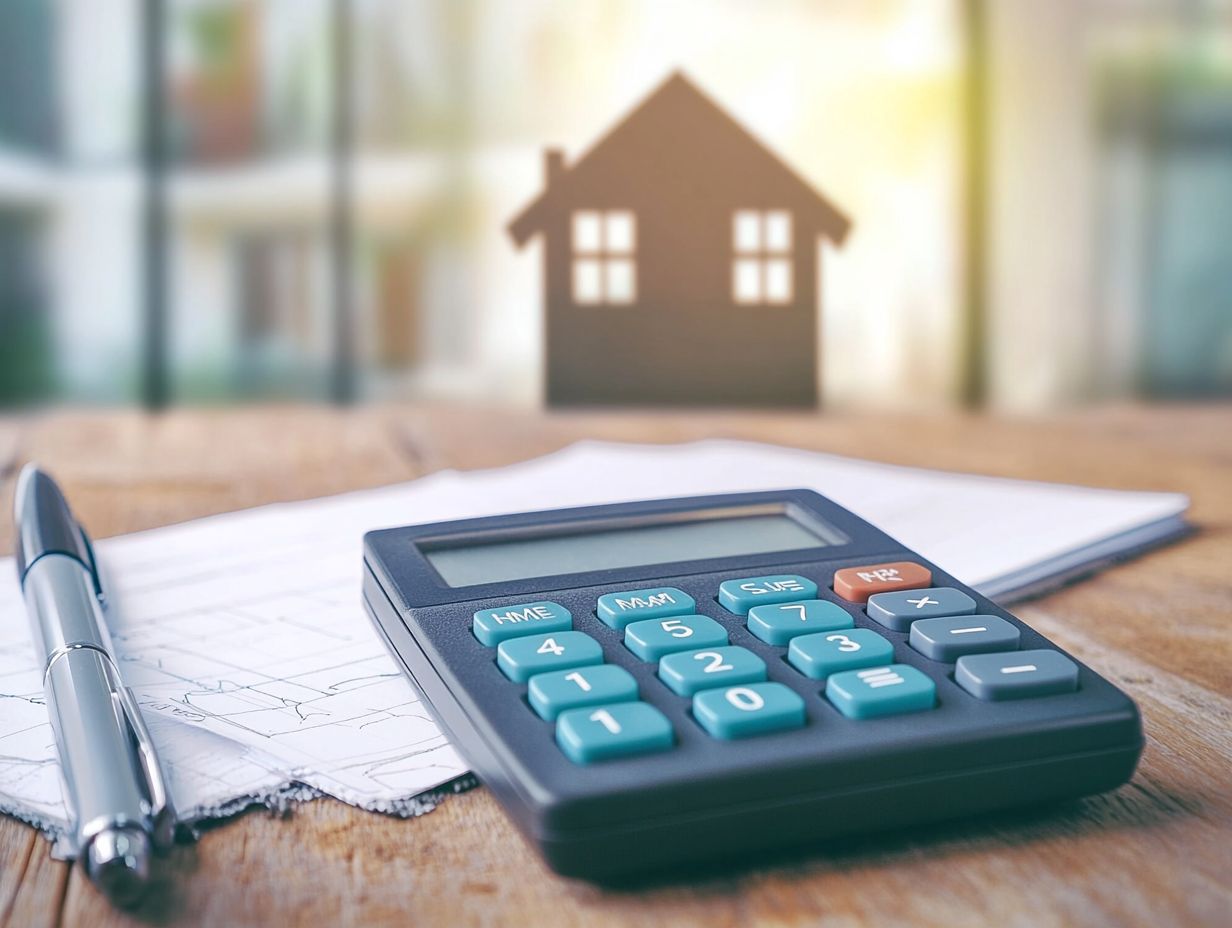
Qu es una inspecci n de vivienda y por qu es importante?
Una inspecci n de vivienda es un examen exhaustivo de la condici n de una propiedad, que generalmente se realiza antes de la compra o venta de una casa. Es importante porque puede revelar problemas o defectos potenciales en la propiedad, brindando a los compradores una mejor comprensi n de lo que est n invirtiendo y ayud ndoles a tomar decisiones informadas.
Cu nto cuesta en promedio una inspecci n de vivienda?
El costo de una inspecci n de vivienda puede variar dependiendo de la ubicaci n, tama o y edad de la propiedad, as como del nivel de experiencia y competencia del inspector. En promedio, una inspecci n de vivienda puede costar entre $300 y $500.
Don t wait! Start your home inspection journey today to secure your dream home!
Qu factores pueden afectar el costo de una inspecci n de vivienda?
Los principales factores que afectan el costo son el tama o, la edad y la ubicaci n de la propiedad. Tambi n, se pueden solicitar servicios adicionales como pruebas de rad n o chequeos de termitas. Las empresas de inspecci n tienen precios distintos, as que compara.
Hay tarifas adicionales de las que deber a estar al tanto?
Pueden existir costos extra por pruebas especializadas. Esto incluye chequeos de agua y sistemas de eliminaci n de desechos. Adem s, algunas tarifas pueden aumentar si la propiedad tiene m ltiples estructuras o si se requiere un viaje largo.
Puedo negociar el precio de una inspecci n de vivienda?
No es com n negociar, pero puede ser posible si compras una nueva construcci n o si el mercado est lento. Recuerda, una inspecci n de calidad vale la pena por la tranquilidad que ofrece.
Vale la pena pagar por una inspecci n de vivienda m s cara?
Elige un inspector con experiencia y buenas calificaciones. Una inspecci n m s cara podr a ofrecer un an lisis m s detallado y servicios especializados, evitando sorpresas costosas m s adelante.

